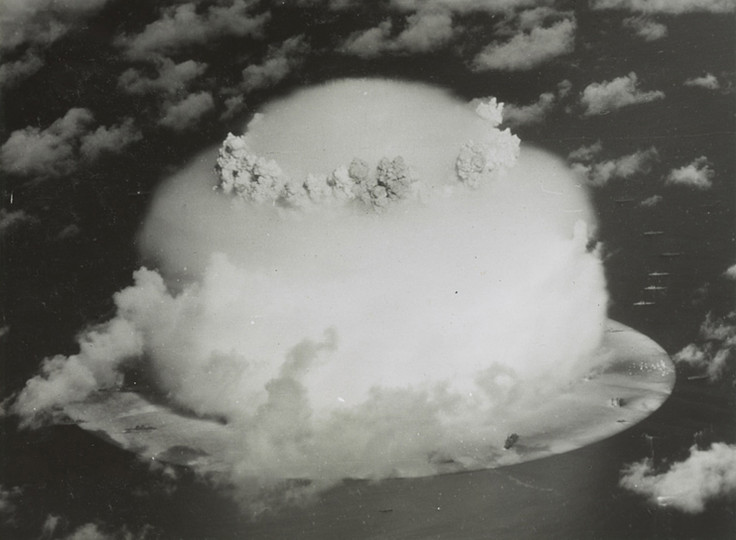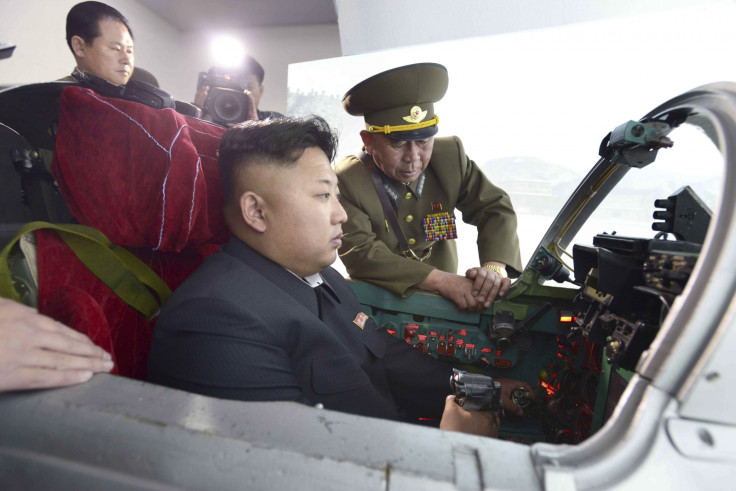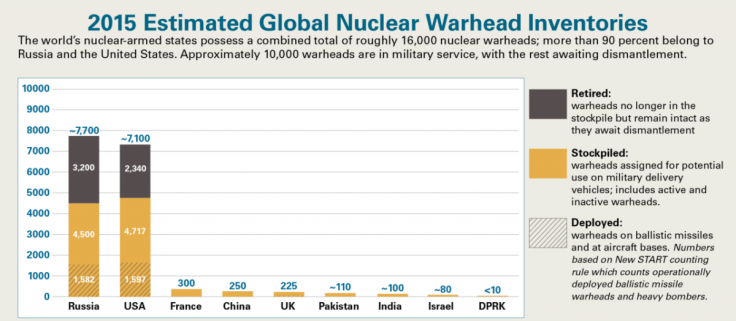Genocide Memorial Day 2016: Nuclear weapons are 'an existential threat to humanity'

Events are taking place on Saturday 16 and Sunday 17 January in London, Birmingham, Lisbon, Madrid, Amsterdam, Brussels, Paris and Jerusalem to focus on the threat that Weapons of Mass Destruction (WMDs), particularly nuclear weapons, pose to mankind.
"This year we continue to further our aim of ensuring that GMD [Genocide Memorial Day] is not merely a commemorative space but provides a platform to raise awareness of genocidal policies, so that we can truly embody the 'Never Again' ethos," Raza Kazim of the Islamic Human Rights Commission said.
"The existence of nuclear weapons and over-emphasis on militarisation is a threat to the security of every human being, and thus in violation of basic principles of human rights. We therefore hope that community members and leaders from all backgrounds will join us in providing a unified response against the possession and use of genocidal weapons of mass destruction by all nations."
This year's theme for GMD is Genocidal Weapons of Mass Destruction. The keynote speaker is Dr Tadatoshi Akiba, former mayor of the Japanese city of Hiroshima. Along with Nagasaki, Hiroshima carries the dubious distinction of being the only city to have ever been attacked with a nuclear weapon.
Also speaking at the event is Dr Enver Tohti, a prominent researcher on nuclear weapons testing in China. Tohti's hometown is 200km north from a former nuclear test site in East Turkestan, which the Chinese call Xinjiang. When Enver was a school boy, nuclear testing was often talked about. "We heard it every day from Chinese children because their fathers were regular employees at the test site. These people left their children at the capital city of Urumqi.
"The children were proud that their fathers were working with the atomic bomb. The propaganda emphasised the achievements of the government to have its own nuclear weapons program. We were all brainwashed. Even me, a Uighur, I was proud of being a Chinese. We had the bomb! None of us had the slightest idea about radiation effects, resulting from nuclear weapons testing."
History of nuclear arms
Four years after the United States conducted its first nuclear test explosion in July 1945 and dropped atomic bombs on the cities of Hiroshima and Nagasaki in August 1945, the Soviet Union conducted its first nuclear text explosion. The United Kingdom (1952), France (1960), and China (1964) followed, according to the Arms Control Association. To prevent the nuclear weapon ranks from expanding further, the United States and other states negotiated the nuclear Nonproliferation Treaty (NPT) in 1968.
Since the inception of the NPT, several states have abandoned nuclear weapons programs, but others have defied the NPT. India, Israel, and Pakistan have never signed the treaty and possess nuclear arsenals. Iraq initiated a secret nuclear program under Saddam Hussein before the 1991 Persian Gulf War.
Iran and Libya have pursued secret nuclear activities in violation of the treaty's terms, and Syria is suspected of doing the same.

An increasing nuclear programme
North Korea is the only country to have conducted a nuclear-test explosion in this century. The Democratic People's Republic of Korea (DPRK) claims to have conducted a fourth nuclear weapons test explosion and early readings from seismic stations in the region strongly suggest a relatively low-yield underground nuclear test was conducted.
"Nuclear weapons are an existential threat to humanity," Ban Ki-moon, Secretary-General of the United Nations said in an informal briefing to the UN General Assembly. "Countries that regard their security as a matter of retaining or attaining nuclear weapons are only increasing risk - their own and the world," he said.
According to the Vienna-based Comprehensive Test Ban Treaty Organisation (CTBTO), the "initial location estimate" of the seismic activity shows that the event took place in the area of North Korea's nuclear test site, Punggye-ri, which is located in the north-east of the country.
A government statement aired by the North Korean Central News Agency stated that the nuclear test took place on 6 January at 10 pm North Korea Time. The North Korean government claimed the successful test "scientifically verified the power" of a small hydrogen bomb.
In December 2015, a report from the South Korean military's Chemical, Biological and Radiological Command said it "did not rule out the possibility" of a boosted fission bomb test by North Korea, although it assessed that it "does not believe [North Korea] is yet capable of directly testing hydrogen bombs."
Lassina Zerbo, Executive Secretary of the Commission for the CTBTO said the fourth DPRK test should "serve as the final wake-up call to the international community to outlaw all nuclear testing."

© Copyright IBTimes 2024. All rights reserved.






